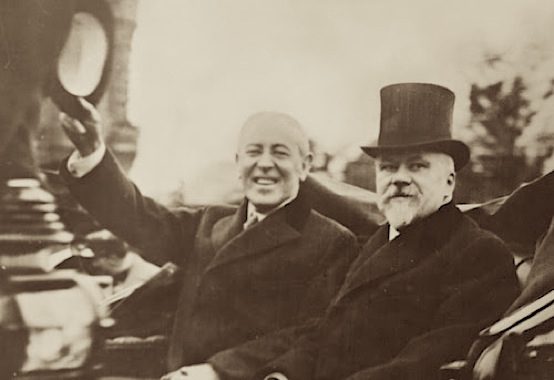America’s Habit of Fighting Unnecessary Wars

Max Boot offers some typically wrongheaded thoughts on America’s foreign wars. He alleges that the U.S. has a habit of losing “won” wars:
What do all these betrayals of trust have in common? A failure by the American population and politicians to sustain a long-term commitment that would build on battlefield gains [bold mine-DL].
In every case Boot cites, he faults the “population and politicians” for their unwillingness to persist in prolonged conflicts or long-term postwar political projects that weren’t part of the original reasons for the war. If this keeps happening, it is probably because the public can’t see the value in sacrificing more American lives in unnecessary wars that had little or nothing to do with U.S. security, and it is probably because no one expected that fighting a given war entailed making a decades-long commitment to remaking the country in question. If that were understood in advance, Americans would likely be much less willing to support those wars, which is one reason why supporters of each new war always minimize how much it will cost, how long it will last, and how much the U.S. will have to keep doing once the initial campaign has ended.
The fault here doesn’t lie with the people or their representatives that don’t want long, open-ended foreign conflicts and occupations, but with the policymakers that embark on wars without understanding or acknowledging the cost, duration, and difficulty of the task they are giving the military. War supporters carelessly involve the U.S. in avoidable wars, and then complain that the people back home aren’t willing to make an enormous commitment that no one ever told them would be required. Then when the people recoil from the costs of the unnecessary war or overambitious reconstruction scheme that the war supporters insist on, the latter accuse them of betrayal. Someone has betrayed an important trust in all this, but it isn’t the people here at home.
The most absurd example Boot offers is post-WWI Europe:
More than 116,000 U.S. troops perished in that conflict only to have the U.S. pull out of Europe immediately afterward [bold mine-DL], allowing Nazis and fascists to come to power and setting the stage for another world war — one that would consume 400,000 American lives.
Where does Boot suppose that U.S. troops would have stayed after the Armistice? What would they have been doing? Guarding against revanchism that wouldn’t happen for another twenty years? Why would Americans have agreed to pay for this? Why would the major powers of Europe have agreed to let Americans establish garrisons on their territory? The war was over, and there was no chance that U.S. forces would not have been demobilized and sent home.
It’s not as if there was any appetite in Europe or in the U.S. to have American soldiers there after the war, nor was there any need for them to be there. Boot refers to the U.S. “allowing Nazis and fascists to come to power,” which credits the U.S. with some magical ability to dictate political developments in multiple countries simply by maintaining a military presence in the region. Does anyone seriously think that a large-scale American occupation force would have made post-WWI Germans and Italians less inclined to radical nationalism? Of course not.
The WWI example is odd in another way, since it was arguably the Allied victory that created the conditions for later interwar political developments. WWI was a war in which the U.S. and its allies forced their enemies to give up and sign humiliating treaties. If the peace was lost, that was in no small part due to the nature of the peace imposed on the defeated parties. The problem wasn’t that the U.S. left after the war had ended, but that the U.S. helped the Allies to achieve a victory that they exploited as vengefully as possible. The mistake, as usual, was the decision to enter a war that the U.S. could have avoided.
Comments